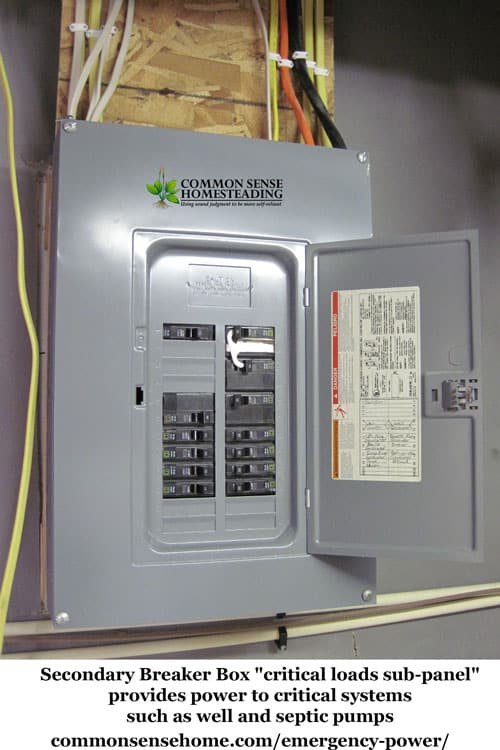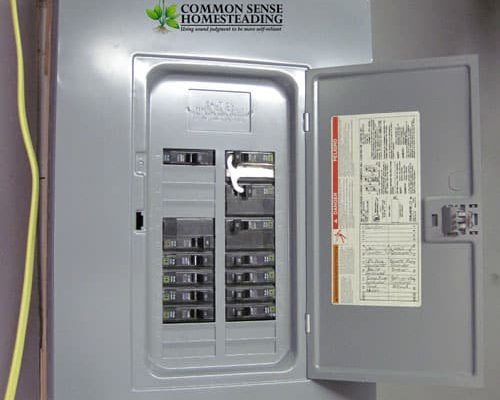
Having reliable backup power isn’t just a luxury; it’s an essential part of home safety. Think of it like having a life jacket when you’re sailing. You might never need it, but if you do, you’ll be grateful to have it on hand. Let’s dive into the various emergency power options available and help you decide which might be the best fit for your home.
Understanding Your Emergency Power Needs
Before you can choose the right emergency power option, it’s important to know what you’re up against. Power outages can happen for numerous reasons, including storms, accidents, or even maintenance work. Depending on the length of the outage, you might need power for a few hours to several days.
You might be wondering: what devices are critical during a power outage? Start by making a list. Essentials often include your refrigerator, lights, heating or cooling systems, and medical devices, if you have them. Not to forget your Wi-Fi router, which helps you stay connected with the outside world, even when everything seems to go dark.
Once you understand what you need to power, it’ll be easier to choose the appropriate solution for your home.
Portable Generators: Your Versatile Lifesaver
Portable generators are a popular choice for homeowners looking for a flexible emergency power option. These machines can provide power to specific devices and are relatively easy to use. Just think of them as your portable friend during rough times.
Most portable generators run on gasoline, propane, or diesel fuel. They can keep your critical devices running for several hours, depending on the fuel capacity. For instance, a typical 4,000-watt generator can power a refrigerator, lights, and a few small appliances simultaneously.
However, keep in mind that while portable generators are great for short-term power, they require some setup. You might need to run extension cords from the generator to your devices, which can be a bit of a hassle if you’re not prepared. Plus, they should always be used outside to prevent carbon monoxide poisoning—never bring them inside.
Inverter Generators: The Quiet Option
If you’re after something quieter, consider investing in an inverter generator. These generators are designed to provide a stable power supply with clean energy, making them ideal for sensitive electronics like laptops or televisions.
Inverter generators are typically smaller and lighter than traditional portable generators. They’re perfect for homeowners who want a back-up power source that won’t disturb their neighbors or the peace in their backyard. You can easily transport them for outdoor use, too!
While they’re generally more expensive than traditional generators, their efficiency and quiet operation may make them worth the extra cost. Just be sure to check the power output to ensure it meets your needs.
Whole-House Generators: The Ultimate Solution
For those looking for a more permanent solution, a whole-house generator could be just what you need. Think of it as the heavy-duty safety net for your home. These systems are installed outside your house and can automatically kick in when the power goes out.
A whole-house generator is typically powered by natural gas or propane, so you won’t have to worry about refueling it manually. They can power your entire home, keeping everything from your refrigerator to HVAC systems running smoothly.
Of course, installation can be quite an investment and may require a transfer switch for safety reasons. However, the peace of mind knowing your home will stay powered even during a long outage can be invaluable.
Battery Backup Systems: For the Environmentally Conscious
Battery backup systems have gained popularity recently, especially among those who want an eco-friendly option. These systems store energy from the grid or renewable sources like solar panels for use during a power outage.
Think about it: instead of relying on fuel, you’re using stored energy. It’s like having a rechargeable battery for your home. During an outage, battery systems can provide power for your essential devices and even allow you to charge electronic gadgets, keeping you connected and informed.
However, while battery backup systems are low-maintenance and quiet, they can have limited capacity. Depending on the size and type of battery, you may need to carefully manage what you power during an outage.
Solar Generators: The Green Choice
For environmentally-conscious homeowners, solar generators provide a sustainable emergency power solution. These systems harness sunlight and convert it into electricity, allowing you to power small devices and keep your lights on without relying on fossil fuels.
Solar generators are perfect for light loads, such as a few lamps or your phone charger. With the right setup, you can even power your refrigerator for a limited time! They’re portable and can be great for camping trips or outdoor events too.
However, just like battery backups, their capacity might not be enough for larger appliances. Plus, their effectiveness depends on sunlight availability, which might be a challenge during stormy weather.
Navigating the many emergency power options available can feel overwhelming, but it doesn’t have to be. Understanding your needs is key—whether it’s a portable generator for short outages, a whole-house generator for peace of mind, or a solar generator for the eco-friendly choice, each option has its strengths.
As a homeowner in zip code 33105, think about your priority during outages. Do you want to keep essentials running, or do you need full power for everything? Whatever your choice, be sure to prepare in advance. It’s much better to stock up on solutions today than scramble in the dark tomorrow.
Taking steps now will ensure you’re ready for whatever life throws your way. Stay safe, stay prepared!
